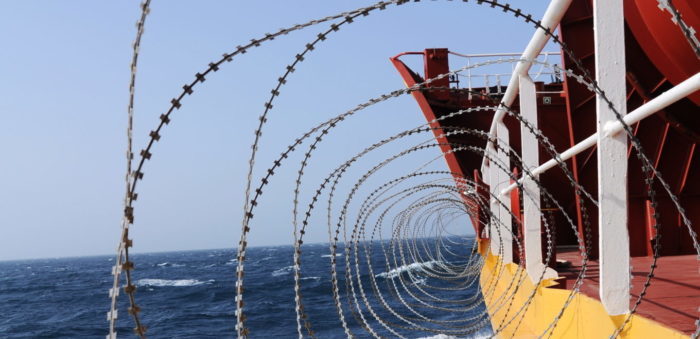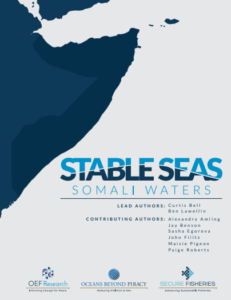A report published by Stable Seas shows how complex issues like illegal fishing, coastal violence, and human trafficking create an insecure maritime environment in Somali waters.
Regional conflicts have changed human migration flows, accelerating the smuggling of trafficked persons and arms across the Gulf of Aden. What is more, insufficient fisheries management contributed to the increase of Somali piracy.
[smlsubform prepend=”GET THE SAFETY4SEA IN YOUR INBOX!” showname=false emailtxt=”” emailholder=”Enter your email address” showsubmit=true submittxt=”Submit” jsthanks=false thankyou=”Thank you for subscribing to our mailing list”]
In addition, poor governance and weak economic conditions contributed to the presence of violent non-state actors like ISIS and al-Shabaab, and now these groups are further affecting political and economic systems. Maritime insecurity has enriched these non-state actors, further weakening governance onshore.
Peace will be difficult to achieve without better maritime security, and maritime security will continue to be evasive as long as the region remains so unstable
The report notes
Other key findings that Stable Seas have concluded on are the following:
- The strategic location of the Somali region and its poor governance capacity makes it a central hub in several illicit transnational networks with connections across much of the Western Indian Ocean;
- Criminal networks are adaptive, seeking new ways to profit from poor maritime governance;
- Maritime security, free from all forms of criminal profiteering, can only be obtained through building the capacity to manage and patrol Somali waters over the long term;
- Undermining criminal networks and addressing their root causes requires an all-inclusive approach that issue-specific methods are unlikely to resolve.
Learn more information in the following PDF


































































